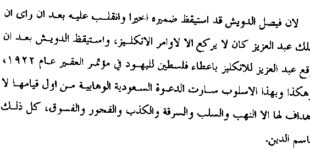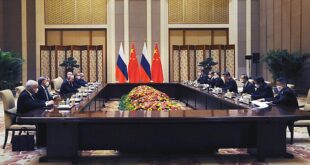The May 10 exchange of missiles on the Syrian-Israeli border is already seen as making the Golan Heights an operational theater in the Syrian conflict.
Before the operation, Israeli officials began warning of an impending Iranian attack from inside Syria. Within hours of the ensuing fight, an Israeli army spokesman announced that the elite “Quds Force” of the Islamic Revolutionary Guards Corps (IRGC) had fired 20 missiles into the Israeli-occupied Golan Heights, after which the Israeli Defense Minister declared that Israel hit nearly all Iranian infrastructures in Syria.
The conflict chronology shows that Israel initiated the incident by striking Syrian military targets in the Damascus suburbs and Quneitra over the two preceding days. Russia had warned Syria and Iran of the impending Israeli strike, so neither Iranian military personnel nor weapons systems seemed to have been hit. The Syrian military (and not the IRGC) retaliated by firing 55 rockets at Israeli military outposts and installations in the occupied part of the Golan.
Political analysts in Beirut and Damascus indicate the fact that all the defense measures taken by Syria and its allies are aimed to counter all Israel’s military actions, including on the Syria and Lebanon fronts. The Lebanese resistance says it is ready to counter any Israeli attack on the Syria-Lebanon border from the south up to the Golan Heights.
However, the resistance does not expect an imminent attack from Israel, but only the persistence of the regional security instability. Monitoring of the border is permanent and it shows that no preparations for an attack are being made.
The recent event is the first major fight between Syria and Israel in the occupied Golan Heights since 1973, making the Golan an operational theater for the first time in over four decades. This is also the first time during the Syrian War that the Syrian military has retaliated against Israeli strikes by hitting Israeli military installations.
While Israel expected Syria and Iran to concentrate on the battles against militants elsewhere (and to be restrained by the Russians, who decided to stay out of Israel’s fights in the region), it did not expect the anti-Israel alliance to redirect the confrontation toward Israel’s military land targets inside the occupied Golan Heights.
Until now, Moscow has tolerated small Israeli strikes against Syrian and allied military targets, but Russia has the leverage to contain such attacks, through its ability to deliver S-300 and S-400 air defense systems to the Syrians, which would be a regional game changer.
In turn, while it is unlikely that any of Israel’s opponents will start a fight with the Israelis, they will retaliate if provoked.
Check Also
China Treads A Fine Line On The Russia–Ukraine War
Since the beginning of the Russia–Ukraine war, China has been urged to give up its …
 Eurasia Press & News
Eurasia Press & News



